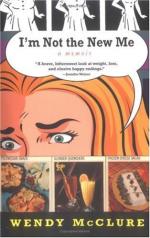In front of the theatre soldiers were on duty, marching up and down with muskets on their shoulders, to show that the state was mighty and could take care of a theatre as well as conduct a war. There were many loungers about, which might have indicated to a person who did not know, that there would be a good house when the play began. The two actors met the manager in the throng near the door.
“How are prospects to-night?” asked Dupre.
“Very poor,” replied the manager. “Not half a dozen seats have been sold.”
“Then it isn’t worth while beginning?”
“We must begin,” said the manager, lowering his voice. “The President has ordered me not to close the theatre.”
“Oh, hang the President!” cried Lemoine impatiently. “Why doesn’t he put a stop to the war, and then the theatre would remain open of its own accord?”
“He is doing his best to put a stop to the war, only his army does not carry out his orders as implicitly as our manager does,” said Dupre, smiling at the other’s vehemence.
“Balmaceda is a fool,” retorted the younger actor. “If he were out of the way the war would not last another day. I believe he is playing a losing game, anyhow. It’s a pity he hasn’t to go to the front himself, and then a stray bullet might find him and put an end to the war, which would save the lives of many better men.”
“I say, Lemoine, I wish you wouldn’t talk like that,” expostulated the manager gently, “especially when there are so many listeners.”
“Oh, the larger my audience the better I like it,” rejoined Lemoine. “I have all an actor’s vanity in that respect. I say what I think, and I don’t care who hears me.”
“Yes; but you forget that we are, in a measure, guests of this country, and we should not abuse our hosts, or the man who represents them.”
“Ah, does he represent them? It seems to me that begs the whole question; that’s just what the war is about. The general opinion is that Balmaceda misrepresents them, and that the country would be glad to be rid of him.”
“That may all be,” said the manager almost in a whisper, for he was a man evidently inclined towards peace; “but it does not rest with us to say so. We are French, and I think therefore it is better not to express an opinion.”
“I’m not French,” cried Lemoine. “I’m a native Chilian, and I have a right to abuse my own country if I choose to do so.”
“All the more reason, then,” said the manager, looking timorously over his shoulder—“all the more reason that you should be careful what you say.”
“I suppose,” said Dupre, by way of putting an end to the discussion, “it is time for us to get our war paint on. Come along, Lemoine, and lecture me on our mutual art, and stop talking politics—if the nonsense you utter about Chili and its President is politics.”
[Illustration: “MY GOD!—YOU WERE RIGHT—AFTER ALL.”]




